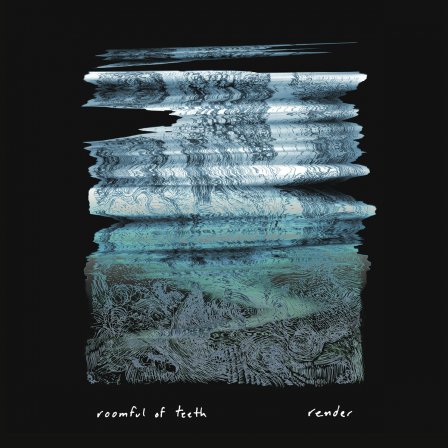If we’ve forgotten the potential of the human voice, it’s only because 21st-century living afflicts us with amnesia. Finding no utility in anything other than a barely animate monotone, our capitalistic age separates us from the notion that we can do more with our larynges and tongues than say “Yes,” “No” or “Big Crap and fries.” Worse still, because the human voice in all its possibility is a symbol and carrier of the self, any limitation on what it can express is ipso facto a limitation on what we can be. Given this existential threat, it’s therefore salutary that a group like Roomful of Teeth are doing the rounds. Numbering four women and five men based in Massachusetts, the vocal octet + artistic director entered public consciousness (a.k.a. the media) in 2012 with its eponymous debut album, which inaugurated a self-avowed mission to re-tap the human mouth as a source of expression and creativity. The next year, the group’s composer Caroline Shaw won the Pulitzer Prize for Music for her “Partita for 8 Voices,” a four-part suite that defined the 2012 album and hurled in everything from sustained croaks and percussive breathing, to abstract spoken word and traditional choral music.
Now, two years and one Grammy for Best Chamber Music/Small Ensemble Performance later, the best chamber music/small ensemble performers have rejoined their quest. Only this time Render finds them extending their liberation of human potentiality far deeper into the repressed and the unknown. Its distance from its more conventional predecessor is witnessed emphatically by opener “Vesper Sparrow,” which escalates from minimalistic solemnity to a prepossessing deluge of harmonizing vocal effects, as primal, primitive, and pure as they are ecstatic and enveloping. Every singer in the group contributes a compact figure to the song’s rich tapestry, the low-pitched bims, boms, and bams of the male half combining with the female half’s quasi-angelic opera to transcend the mundane uses to which the voice is put by pop music and everyday life.
More than anything else, it’s the irreducible strangeness of these noises, ejaculations, and polyphonies that underlines just how divorced we are and have become from our own capacities and natures. We react to the guttural, cultish rhythms of “The Ascendant: The Beginning” and the staccato squeaking of “High Done No Why” with the kind of awed surprise reserved primarily for the novel and the foreign, despite the fact that these a cappella symphonies are produced exclusively by the biological hardware we’ve all possessed since adolescence, if not birth. Their sheer exoticism highlights how the narrowed civility of modern civilization has transformed the human body itself into a kind of exotic territory, and it’s the body’s new-found alienness, its otherness that’s communicated by the enlisting of Mongolian throat singing for the gravely mesmeric “Beneath” or springy African chants for the effervescent “Otherwise.”
Not only that, but the multidimensional vibrancy of later compositions undermines the idea that the human voice is dependent on language to convey information. In “The Ascendant: The Fence is Gone,” syncopated and overlapping motifs interlock with a myriad of floating hums to set the contemplative scene for such intermittent lines as, The fence is gone/ We’re starting to see/ Our nudity.” Even without these lyrics, the track’s rich stratification of vocal contortions and rarefied gasps evokes an unexpectedly detailed emotional picture, reminding us that the “meaning” of what we say to each other is often more a function simply of the tone, timbre, and texture of our breaths than of any semantic content such breaths might possess. This reminder is only strengthened by the weighty opulence of a “Suonare,” where Roomful of Teeth’s eight vocalists weave in and out of each other in a mixture of saintly registers, and by the near-divine title track, where they exploit a rising series of a-verbal drones to implore us toward a path of wonder, reverence, and piety.
Render, therefore, passes an intriguing if inadvertent comment on how the raw physicality of the human voice, despite being constrained and suppressed in today’s prohibitively capitalistic era, is secretly relied upon by this era to imbue its languages with significance and force, to compensate for the indeterminacy and incoherence of formal English, Spanish, or Mandarin. The wordless phrases, progressions, and choruses of “The Ascendant: Surviving Death” all bear witness to this, consolidating as they do into a portentous drama that compels us to attend to its warnings, and that imbues the closer’s recurring lyric with more urgency and severity than it would’ve had as mere text written on a page. As a result, their prolonged buzzings, cries, and blurtings also furnish a cautionary indication of the manipulative potential of the human voice, of its status as an instrument of control and power, since by the time of the piece’s foreboding climax, they’ve cowed us into a position of submissiveness and apprehension.
However, despite the clout of Render’s orchestration, as well its bounteous diversity and ingenuity, there’s one snag that prevents its unshackling of the human voice from being an unqualified success. Even though the components — the groans, whines, murmurs, hollers, and sibilations — it uses are unorthodox enough to imply an escape from convention and normality, the arrangements into which these components are fitted are, for the most part, traditional and linear. Put differently, the album as a whole appears to say that human potential should be nurtured only insofar as it can be subsumed directly into the very structures and institutions that crippled it in the first place. This is, in fact, entirely appropriate and unsurprising, since the album’s “mining” of an expressive potential that’s been diminished by a capitalist system is, at bottom, possible only because the very same system is willing to sell it. And while those who buy it will no doubt be in for a lavish feast, they’ll really only be buying back a commoditized, ersatz substitute for something that was stolen from them long ago.
More about: Roomful of Teeth



